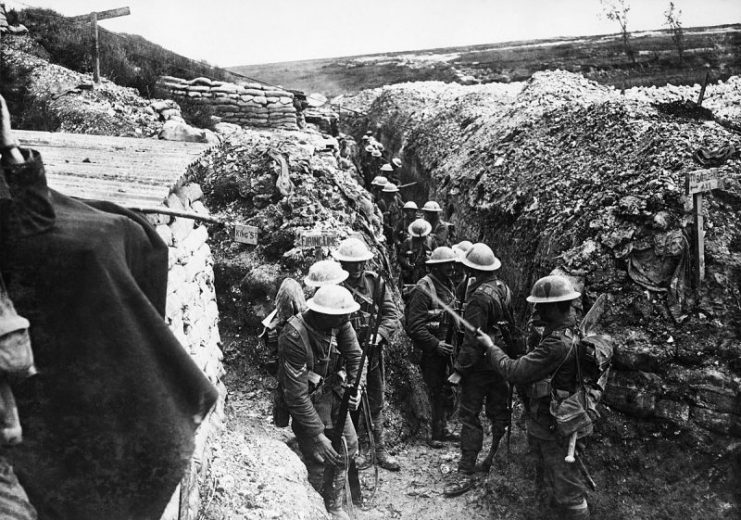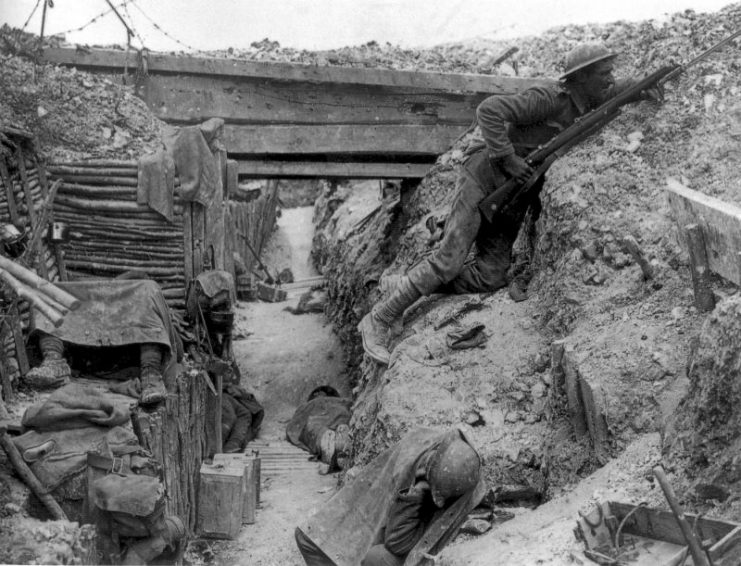During World War I, many soldiers kept diaries while fighting from the trenches. Recently one written by a British soldier has surfaced and the 162-page book will go up for auction on April 10 with Bellman’s. The identity of the soldier is unknown, but it appears he was a member of the 3rd Battalion Northumberland Fusiliers on the Western Front for almost a year in 1914 and 1915, one of the Battalions that participated in the Christmas Day truce. After getting together for a friendly game of football and socializing all day, it was difficult to go back to being enemies.
The soldiers worked out a plan. When an attack on the British troops was forthcoming, the Germans would signal the British troops to let them know, and the British soldiers would do the same for the Germans. The diarist noted that “General HQ would be pretty sick if they knew this.” The diary also tells of the compassion the men felt for each other after meeting and speaking with each other when a German soldier was wounded. When the British men were unable to pull him from the battlefield, the diarist lamented the fact that the soldier had to die a slow and inhumane death.

World War I trench diaries have been found by family members, buried away in old houses and among old books. One, written by Sergeant Horace Reginald Stanley during the battles of Ypres and the Somme, was found by his daughter, Heather Brodie, when she was cleaning out the attic. In the diary, Sargent Stanley recounts seeing his brother killed at Arras, France, when a shell hit his dugout. Stanley wrote of the incident, “Could we return to the happy days of 1914, things can never be the same again, my brother is dead. I expected this but my poor mother will never be the same again.”
Stanley also tells of seeing nearby soldiers being horrifically wounded, “Some poor wretch has the side of his skull blown away and it is obvious nothing can be done for him. Oh the horror of it all. Why does it take so long for a man to die? We are trapped like rats, we cannot go forward, the way is barred and even if we could, machine guns and rifles are waiting to mow us down like a scythe. We cannot go right or left, we cannot go back, we can only wait numbed or stupefied.”
Stanley survived the war, but his family was not aware of the diary until Heather found it. Her daughter, Juliet, published the diary with Poppyland Publishing in 2007, under the title Grandad’s War – The First World War Diary of Horace Reginald Stanley.

Another British soldier in France, Captain Charlie May, also kept a diary during the war that was stored in an attic for eighty years. As a journalist before the war, May was accustomed to writing and documented his wartime experiences, fears, and longing for his family in seven notebooks. May, who was a member of B Company, 22nd Manchester Pals Battalion, spoke of the ghastly deaths of his comrades in arms and the dreadful conditions in the trenches having to deal with rain, mud and rats.“They ran over my legs, body, chest and feet. But when they started on my face I must own that I slavishly surrendered, fell to cursing horribly and finally changed my lying place. I can tell you they are some rats, these.”
Sadly, Captain May did not survive the war as he was killed by a shell when he and his Company charged the German line on the first day of the Battle of the Somme. His aide, Private Arthur Bunting, braved three hours of gunfire as he stayed with May’s body until he could bring it back to the trench. Bunting retrieved all of the diaries and mailed them to May’s wife and baby daughter.
Gerry Henderson, Captain May’s great-nephew, published the diary called To Fight Alongside Friends: The First World War Diary of Charlie May in 2015.
